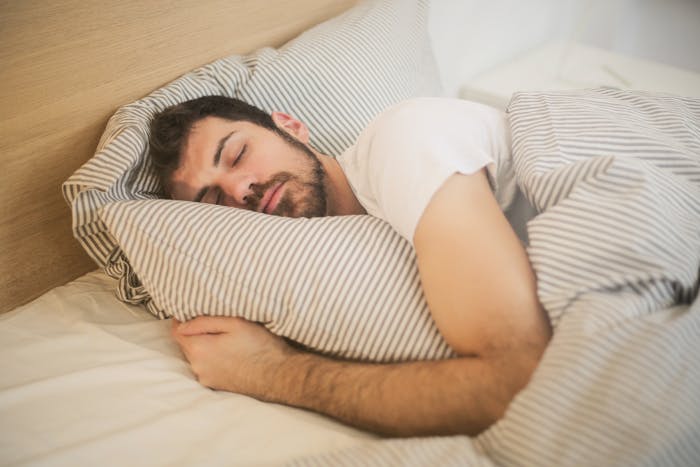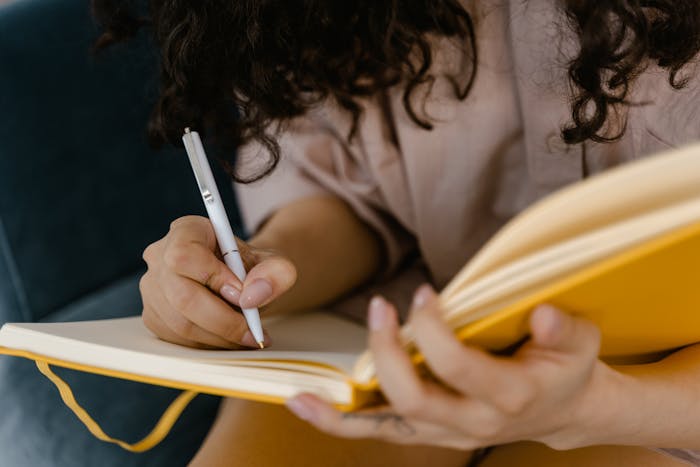Addiction recovery is a complex process and takes a lot of resilience and focus on routine.
One of the most transformative, yet often overlooked, tools to use in your recovery is a simple bedtime routine.
Sleep has a central role in mental and physical wellbeing, especially in early recovery. For anyone trying to rebuild their life after drug and alcohol addiction, getting a good night’s sleep can be a stabilising force in the fight against relapse. [1]
Establishing a calming and consistent routine before bed helps the brain to wind down from the day, reduce stress, and create a structured rhythm to your recovery journey.
This blog explores the importance of bedtime routines in addiction recovery and some practical steps for creating a routine that works for you.

When you have an addiction, this generally has a large impact on your sleeping habits.
Drugs and substances like alcohol, opioids, stimulants, and benzodiazepines have a disruptive effect on the brain’s natural sleep cycle, making it hard for you to fall or stay asleep, and achieve real, restorative rest.
Even after you go through detox, many people struggle with a number of symptoms, including:
Getting a good night’s sleep is incredibly important during recovery, since fatigue impairs judgement, lowers your mood, increases irritability, and may harm your ability to cope with cravings and triggers.
Studies have shown that long-term sleep problems can increase the risk of relapse. [2]
Having a good bedtime routine can support your circadian rhythm and signal safety to your nervous system, supporting you with the emotional balance you need in early recovery.

Sleep is essential for each and every one of us, but it is incredibly important during addiction recovery.
When it comes to addiction and recovery, it can become a vicious cycle. Addictive behaviours such as substance use disorders or behavioural addictions, can lead to a lack of sleep, but then a lack of sleep can result in someone relapsing or worsening their addictive behaviour. [3]
By ensuring a regular sleep pattern, you’re able to enhance the effectiveness of your addiction recovery.
Having a good bedtime routine can be simple. All you need is to create cues that tell your body it’s time for you to go to sleep.
Below are some evidence-based steps for you to try that can make a big difference to your sleep: [4]
Making sure you get to bed at the same time every day, even at the weekends, helps your body to establish a natural rhythm. This can be one of the best tools for reducing insomnia.
Phones, laptops and TVs all emit blue light that disrupts the creation of melatonin, tricking the brain into staying awake.
Try to stop using any phones and laptops at least one hour before bed. If you need to use any meditation apps to sleep, then switch to audio-only mode.
Activities that relax your mind and body can be great psychological cues that it’s time to rest, including:
Something overlooked in having a good bedtime routine is making sure your bedroom is safe and comfortable. Try:
Since sugar, caffeine and nicotine all disrupt sleep, you should try to avoid any of these stimulants in the evening.
Opt for earlier snacks and other warming sugar-free and caffeine-free drinks such as peppermint tea.

Whilst everyone has individual routines specific to themselves, here’s a simple routine that can be adapted to suit your needs:
Instead, switch to softer lighting and put your phone in another room so you can’t be tempted.
This can be anything from reading and meditating, to stretching and taking a warm shower.
Think back through your day and write down three things you’re grateful for.
Brush your teeth, wash your face and be ready to get into bed.
Lie down and put on a podcast or soothing sounds to fall asleep to.
Don’t worry if you struggle to practice your new bedtime routine, it can take time to put new habits into practice. But change builds and gradually becomes the new normal.
It is extremely common in addiction recovery to have sleep problems, but there is help out there.
You should make sure you are following your aftercare plan, but if you’re still struggling with adjusting to life and sleep after addiction rehab, you could consider:
You might find it useful to track your sleep patterns to identify what’s causing your insomnia.
A bedtime routine may seem like a small thing, but it can be crucial in addiction recovery. Try implementing small changes bit by bit to give your body and mind the rest it needs in recovery.
Over time, your evening routine can become a great anchor within your recovery.
Rehab 4 Addiction can help advise you and offer confidential support with anything you might be struggling with related to your addiction or recovery.
Call 0800 140 4690 to speak to a member of our team today.
[1] https://pmc.ncbi.nlm.nih.gov/articles/PMC2850945/
[2] https://www.tandfonline.com/doi/full/10.1080/16066359.2022.2074406
[3] https://pmc.ncbi.nlm.nih.gov/articles/PMC9926005/
[4] https://newsinhealth.nih.gov/2021/04/good-sleep-good-health